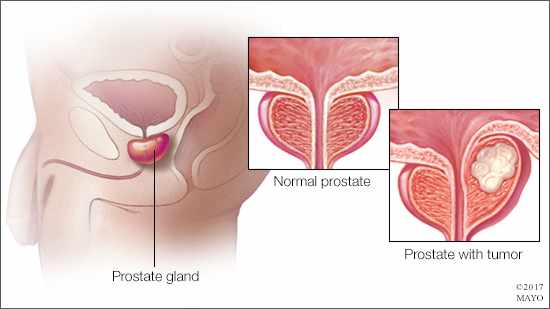-
Living With Cancer: Treating prostate cancer
 Hormone therapy for prostate cancer
Hormone therapy for prostate cancer
Most prostate cancer cells rely on testosterone to help them grow. Hormone therapy for prostate cancer, also called androgen deprivation therapy, is treatment to stop the male hormone testosterone from reaching prostate cancer cells in your body. Learn about how the therapy works, the possible side effects and risks, and whether it might be right for you.
Video: Self-image during cancer
Hair loss due to chemotherapy treatment for cancer can be difficult emotionally for many people. A salon at Mayo Clinic is helping patients feel beautiful inside and out. And what happens at the shop goes much deeper than just giving tips on wigs, hats and how to wrap a head covering. It's about listening, sharing and offering strength when the journey overwhelms.
Neuroendocrine tumors: An overview
Neuroendocrine tumors begin in specialized cells called neuroendocrine cells, which have traits similar to nerve cells and hormone-producing cells. Examples of neuroendocrine tumors include adrenal cancer, islet cell cancer, paraganglioma and medullary thyroid cancer. Treatment of neuroendocrine tumors depends on the type of tumor, its location, whether it produces excess hormones, how aggressive it is and whether it has spread to other parts of the body. Learn more about this rare type of tumor.







